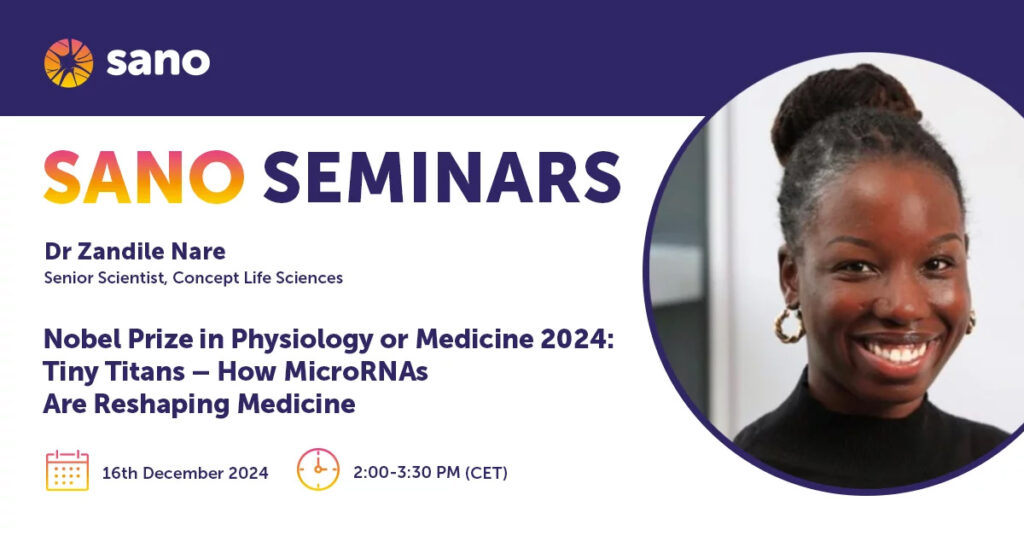150. Nobel Prize in Physiology or Medicine 2024: Tiny Titans – How MicroRNAs Are Reshaping Medicine
Dr Zandile Nare - Senior Scientist, Concept Life Sciences
Abstract
The 2024 Nobel Prize in Physiology or Medicine honours Victor Ambros and Gary Ruvkun for their pivotal discovery of microRNA (miRNA) and its role in post-transcriptional gene regulation. This seminar will trace the fascinating history of miRNA research, from its unexpected discovery in C. elegans to its significance in human health. We will explore how these small RNA molecules fine-tune gene expression and their implications in cellular function, human development, and disease, highlighting their potential in diagnostics and personalised medicine. Finally, we will examine the promising therapeutic potential of miRNAs, highlighting ongoing efforts to harness these tiny titans to potentially treat cancer, cardiovascular diseases, and other complex conditions. Join us as we unravel the story of how a seemingly small and serendipitous finding transformed biology and opened up new opportunities for medical innovation.
About the author:
Having obtained her MSc and PhD at the University of Edinburgh in target-based drug discovery in infectious diseases, Zandile has a keen interest in combining biophysical- and cell-based methods for integrative approaches to drug discovery and development. Currently, Zandile is a Senior Scientist at Concept Life Sciences (Edinburgh, UK), where she works primarily in the Biophysical Sciences team. In this role, she leverages Concept’s comprehensive suite of biophysical tools to evaluate the physicochemical properties of various macromolecules and therapeutic compounds, as well as the interactions between these molecules and their targets, elucidating their complex behaviour to guide therapeutic development. With additional industry experience in GMP process development of antibody drug conjugates, Zandile’s expertise extends to working with various sample types, including proteins, small molecules, and nucleic acids. Her passion for innovation in drug discovery has led to a growing interest in novel modalities, including nanoparticles, heterobifunctional degraders, molecular glues, and extracellular vesicles – areas she is keen to explore further in the future.


